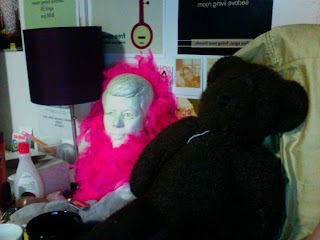On his travel back to Germany, Captain Rudolf Wegner (better known to the reader as Mr. Baynes) reflects on his actions and the dystopia that he lives in. Although Captain Wegner was successful in warning General Tedki about Operation Dandelion, he is not optimistic about the world’s future. Captain Wegner delves into a deep discussion about individual actions and their overall effects:
“Whatever happens, it is evil beyond compare. Why struggle, then? Why choose? If all alternatives are the same…” (pg. 246)
Yet, in just the previous chapter, Mr. Tagomi visits an alternative world that is very different than the world that Captain Wagner contemplates. Also, in the next chapter, the reader learns that the world in The Grasshopper Lies Heavy is the “real,” while the world that all characters live in is “fake.” Captain Wegner’s ideas conflict with the ongoing theme of the book—individual actions do matter and one change in an event can influence the entire make-up of the world.
Captain Wegner later sprinkles some hope when he talks about an alternative world:
“On some other world, possibly it is different. Better. There are clear good and bad alternatives. Not these obscure admixtures, these blends, with no proper tool by which to untangle the components." (pg. 246)
The characters in this novel are conscious of these alternatives. I point this out specifically in Captain Wegner’s case because although he does not experience a revelation in the same way as Juliana and Mr. Tagomi, he does acknowledge how the world could be different through his thoughts. Captain Wegner is interesting due to his stance on the matter. The two quotes I provided seem to butt heads; the first quote opposes free will, but the second quote speaks of alternate realities. Captain Wegner does not use the I Ching to guide his life, but still struggles with theses concepts of free will; this a common motif weaved into the text of the book.

